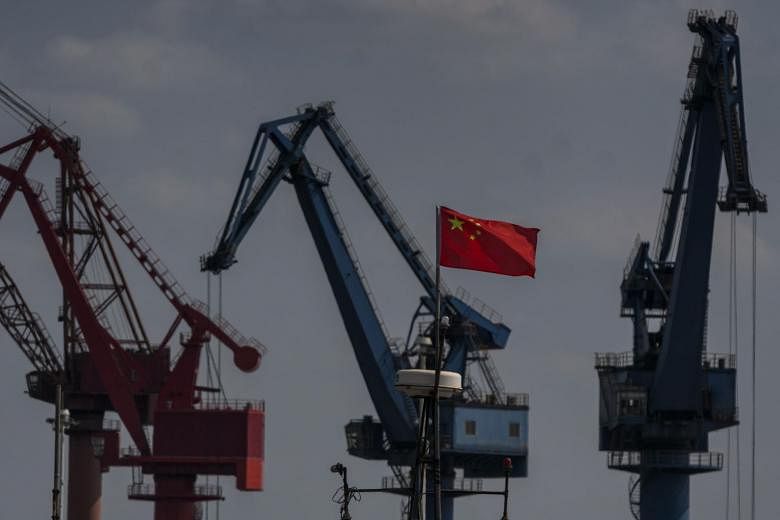BOAO, HAINAN - The press should present a truthful, objective and multi-faceted picture of China's Belt and Road Initiative (BRI), top Chinese officials stressed at an annual gathering of international media organisations here.
Beijing also called on news outlets to adhere to the "correct and objective reporting direction" of the Chinese-initiated, globe-spanning infrastructure building initiative, even as top editors from various news agencies said there needs to be more localisation and better management of individual BRI projects.
"Five years in, the Belt and Road Initiative has already yielded numerous fruitful outcomes that benefit many people; therefore this should be the general direction and tone of media reports," Vice-Minister of the Central Propaganda Department Jiang Jianguo told the gathering of more than 250 media professionals at the 5th annual Belt and Road forum on media cooperation.
Doubts about the purpose and effectiveness of the BRI persist "mainly due to the lack of understanding, inconsistency and inadequacy of information", he added.
More than 200 Chinese and foreign media organisations were represented at the forum, meant to enhance exchanges and cooperation between the world's media.
This point was repeated by other Chinese leaders such as Hainan provincial party secretary Liu Cigui, who said news outlets should present "truthful, multi-faceted and comprehensive coverage of China as a trustworthy partner... to create a favourable environment for better cooperation".
Attendees agreed that China is helping to fill the world's infrastructure gap. DMG Media commercial adviser Guy Zitter noted that China has accrued much expertise and experience in building infrastructure, something much of the world, including the United Kingdom, sorely needs.
Poor infrastructure results in political upheavals, and Britons may not have voted for Brexit if the UK had better hospitals and transportation, said Mr Zitter, formerly the managing director of the Daily Mail newspaper. He proposed a new and independent Belt and Road index that quantifies the economic benefits of BRI projects.
But projects that exclude local populations and investments that squeeze out local companies are why there is a growing narrative that China is becoming Africa's new colonial master, said Mr Olusegun Adeniyi, editorial board chairman of Nigeria's Thisday newspaper.
A number of BRI projects in Africa have come under fire in recent months due to poor risk management and planning, such as the US$4-billion (S$5.5-billion) Addis Ababa-Djibouti freight railway inaugurated just this year which has already cost China close to US$1 billion in losses due to debt restructuring.
Earlier this month, Sierra Leone scrapped a US$318-million airport project outside its capital Freetown, which the newly elected government had called "uneconomical".
Mr Adeniyi noted that while China has lifted millions of its people out of poverty every year through infrastructure building and human capital development, more Africans are sliding under the poverty line despite the billions China has invested in the continent.
"To address the growing perception of neo-colonialism, China needs to invest not just in trade and infrastructure in Africa but also people development and soft power projection," he said. "It is more important to build a strong constituency of support for China in Africa."
Other views put forward included better youth outreach and training in Belt and Road countries, as well as working more closely with local media groups to better articulate the benefits that BRI projects will bring to the people of the host nation.
Singapore Press Holdings' chief executive Ng Yat Chung suggested that Beijing consider fine-tuning commercial and financial sustainability factors at the planning stage to suit each project's local conditions.
There could also be more consideration on how to increase the role of local partners such as media and workers so that projects are win-win for all, he added.
"Chinese leaders have repeatedly stressed that the BRI is a chorus rather than a solo performance, hence it is also useful to allow more voices to join in the party," he said.
"In this way, the BRI's benefits can be more visible to local communities in partner countries, helping to cement local support for the long term."


